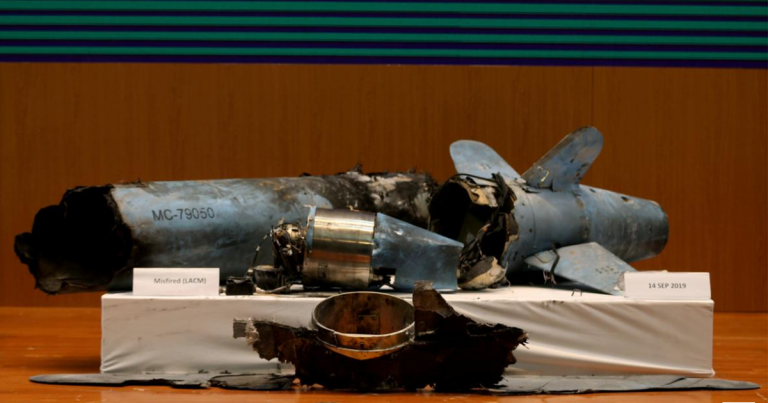
European nations have backed US accusations blaming Iran for an attack on Saudi Oil Plants.
Britain, Germany and France on Monday supported United States and blamed Iran for the Sept 14 attack on two oil plants at the heart of the kingdom. They have also urged Tehran to agree to new talks with world powers on its nuclear and missile program and regional security issues.
A joint issue was released by the Europeans after British Prime Minister Boris Johnson, German Chancellor Angela Merkel and French President Emmanuel Macron who met at the sidelines of the annual gathering of world leaders at UNGA.
“The time has come for Iran to accept negotiation on a long-term framework for its nuclear program as well as on issues related to regional security, including its missiles program and other means of delivery,” Britain, France and Germany said.
However, Iran refused any possibility of negotiating new deal with powers, Iranian Foreign Minister Mohammad Javad Zarif tweeted on Monday. He further said that European nations failed to fulfill their commitments under a 2015 nuclear pact.
The tension between Washington and Tehran became sour after U.S. President quit a deal last year that assured Iran access to world trade in return for curbs on its nuclear program. A recent attack on Saudi Arabia’s two plants has moreover added fuel to the fire between the two nuclear armed nations.
The U.S. and Riyadh blamed Iran for the Sept 14 attack, but Iran denied responsibility. Yemen’s Iran-aligned Houthi group, which has been battling a Saudi-led military coalition, said it carried out the attack.
The United States will intensify pressure on Iran, U.S. Special Envoy for Iran Brian Hook said in New York on Monday. The United States was seeking to address the issue through diplomacy and a multilateral effort, and there was a role for the United Nations Security Council to play, Hook said without elaborating.





